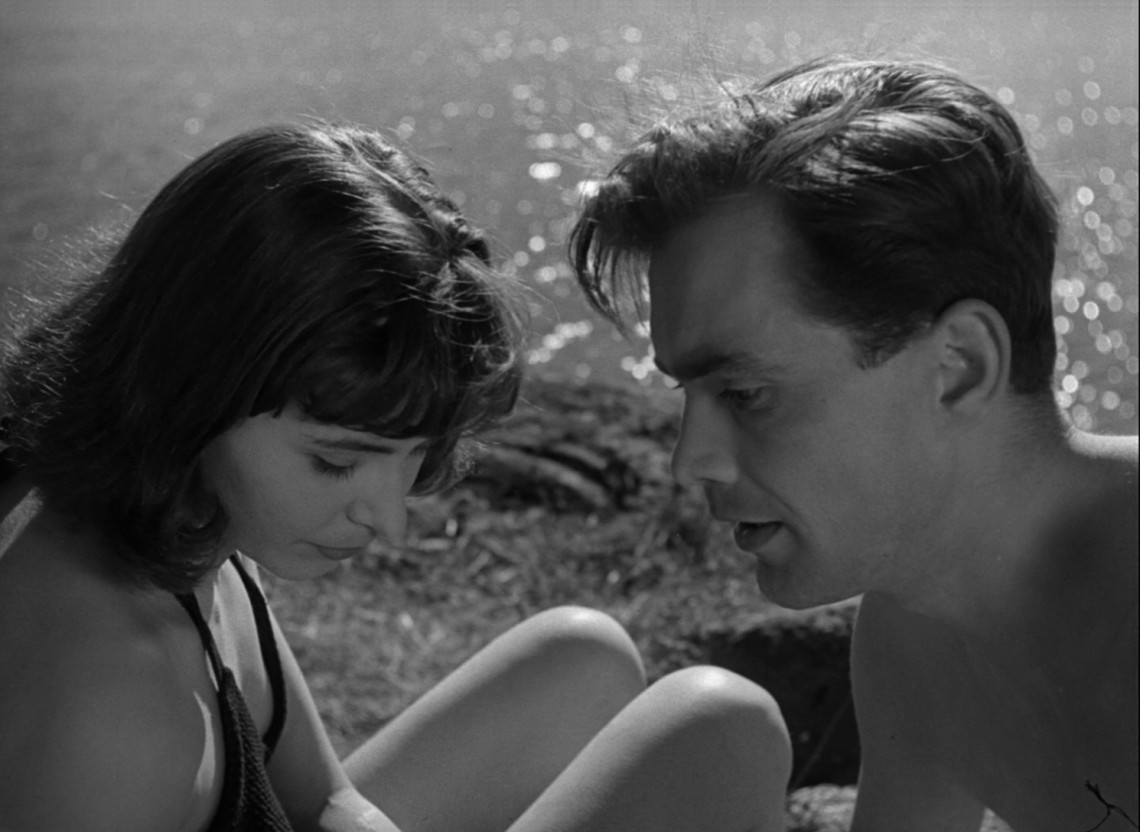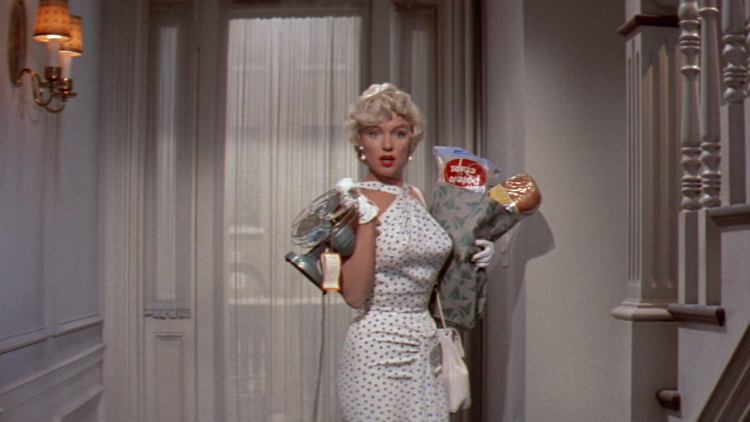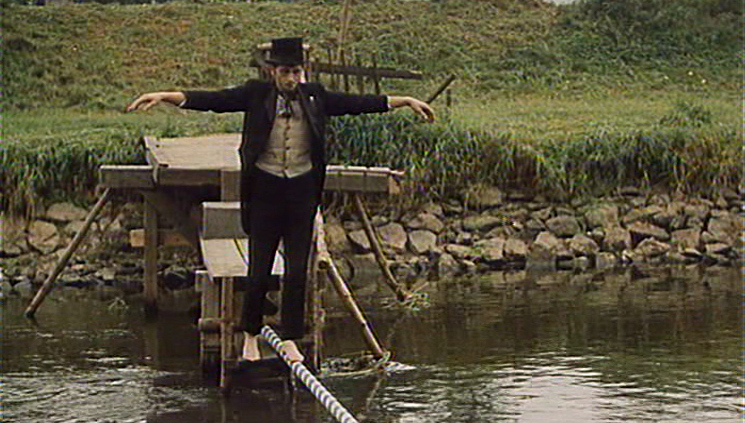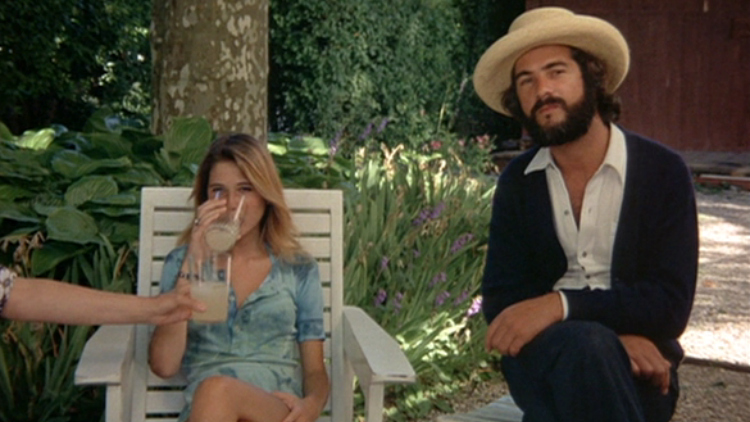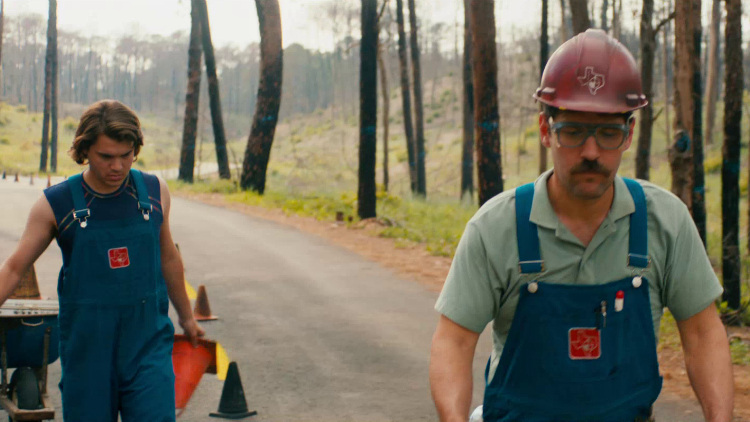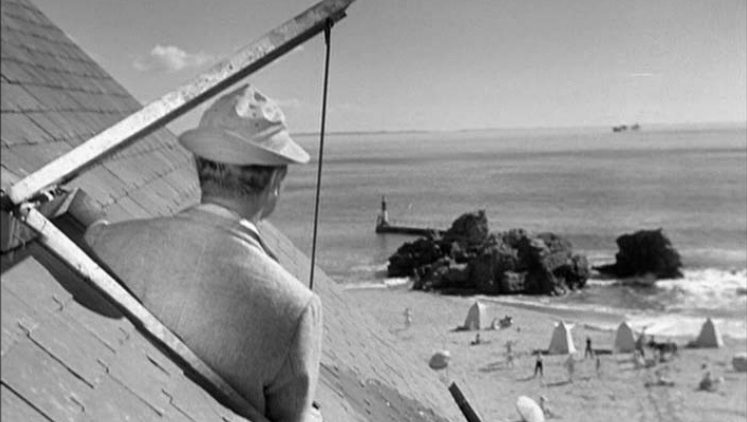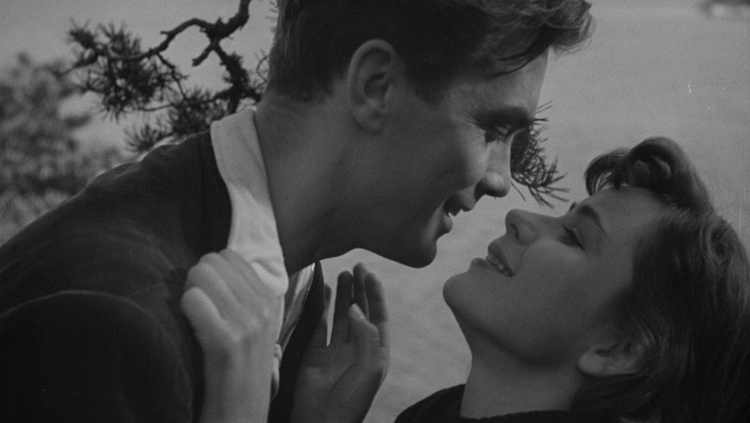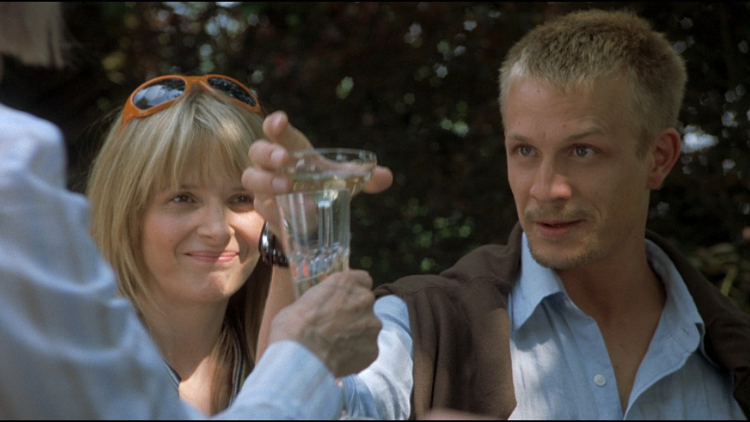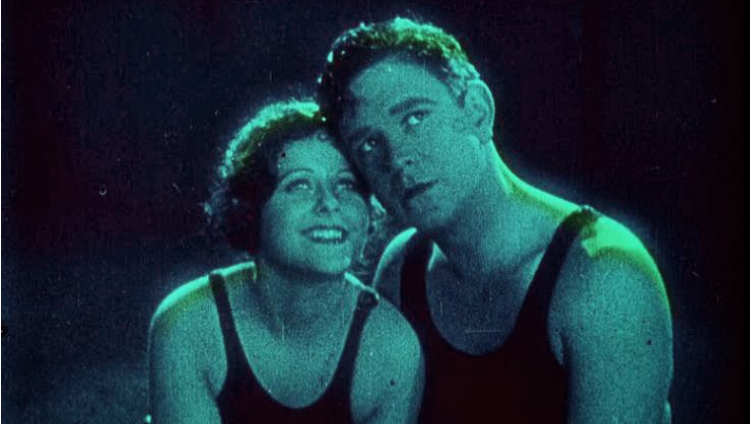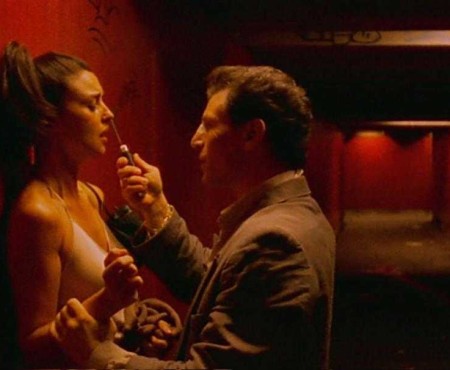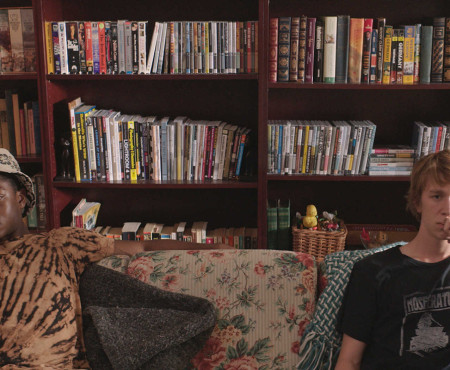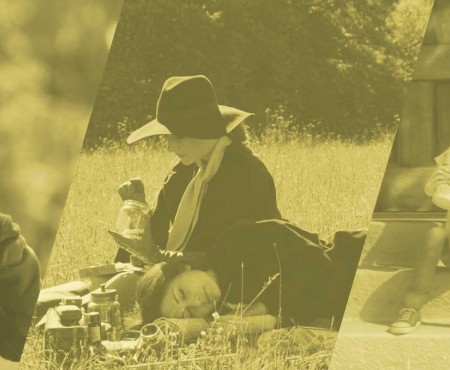Summer on film is, understandably, largely portrayed as a time for young people. School’s out, sun’s out, time to grow and mature while retaining minimal commitments. But summer comes to mean quite a different thing as an adult, retaining though it might the twinges of nostalgia and positive associations it held in youth. For the French, that separation might be minimal, as their culture places some value on leisure (though even that, we shall find, comes with its share of responsibilities). For the Americans, it means, at best, a modest change in one’s work schedule, one that nevertheless could not be found outside of those precious months. With summer officially beginning this weekend, here are eight films about how adults wile away their summer days.
8.) The Seven Year Itch (Billy Wilder, 1955)
The film that lent popular culture the famous image of Marilyn Monroe attempting to maintain her decency in a white dress above a subway grate relies extensively on the very iconography it spawned. Tom Ewell plays an executive trapped in New York City while his family vacations, certain he’ll maintain his fidelity even as his colleagues spend the month chasing skirts. But after seven years of marriage, one’s eyes start to wander, especially when a girl who looks like Monroe has just moved into the apartment upstairs, and is so terribly friendly about meeting new neighbors. The American summer is freedom for many, but a hotbox for many more.
7.) Capricious Summer (Jiri Menzel, 1968)
Three old friends gather at a lakeside retreat to muse about their advancing age and collective knowledge, disappointed by their relatively few accomplishments and, soon, the inclement weather. That is, until the circus, and its rather shapely showgirl, arrives. Like so many Czech films of the period, Menzel beautifully weaves small social observations with near-surrealist whimsy, creating a sharp portrait of vacation.
6.) Claire’s Knee (Eric Rohmer, 1970)
A key installment of Rohmer’s famous Moral Tales, Claire’s Knee sees New Wave regular Jean-Claude Brialy deterred from his plan to marry a diplomat’s daughter; while on his summer vacation, something as simple as a young girl’s knee sends his conscience spiraling, dragging all his doubts down with him. Rohmer expertly contrasts Brialy’s moral crisis with the soothing environment of a lakeside retreat, as his protagonist attempts to maintain his even facade amidst growing uncertainty.
5.) Prince Avalanche (David Gordon Green, 2013)
When it’s necessary to work through one’s vacation months, sometimes it pays to take a job that takes you far off the beaten path. So choose Alvin (Paul Rudd) and Lance (Emile Hirsch), each very different men with different needs for a summer job repainting traffic lines in the Texas woods. Green’s casually comedic and ever-so-slightly surreal film has the minor feel of a tossed-off film, but the resonance of something much finer and carefully-honed.
4.) M. Hulot’s Holiday (Jacques Tati, 1953)
People’s habits on what is theoretically vacation can often be as amusing as that of the more commonly lampooned workplace or city center, so caught up as they are with wrangling the kids, trying out new equipment, managing schedules, and other myriad responsibilities that come with “fun in the sun.” Tati, as is his wont, makes the most of these sly observations, crafting an enthralling, grotesque cartoon in the process.
3.) Summer Interlude (Ingmar Bergman, 1951)
As we age and responsibilities pile up, it is normal to look back on youth as a simpler time. That’ll compound quite a bit when you have some tragedy that definitely put an end to one’s innocence. Summer Interlude is not one of Bergman’s major works, but in any other director’s filmography, it would be. As emotionally devastating as it is aesthetically ravishing (and playful; it’s the only Bergman film to feature a brief bit of animation), it demonstrates how even something as wonderful as summer (which, in Sweden, only lasts six weeks) can be tainted forever. Maj-Britt Nilsson, a key collaborator in Bergman’s early years, gives her finest performance as the ballerina protagonist, too wrung out to fully engage with the pressing drama of her current life.
2.) Summer Hours (Olivier Assayas, 2008)
Three siblings (Juliette Binoche, Charles Berling, and Jérémie Rénier) gather one summer to discuss what’s to be done about all that they are to inherit from their mother. Assayas’s small, naturalistic drama plays the momentous occasion for the way it feels in life, like a constant attempt to deny its importance, one’s attempt to focus on the details rather than the emotional implications. Resultantly, we shoulder the burden all that they try to repress or ignore.
1.) Lonesome (Pál Fejös, 1928)
Simply put, one of the greatest films of all time. Two young, separate, wage-earners are off the clock early, thanks to the Fourth of July holiday, but have nowhere to go. Both have friends who are off for a rollicking day with their own dates. Not wanting to intrude, they lie and say they have their own plans, before boarding a bus headed for Coney Island, where the fun, truly, seems to be. Finally they meet, and what a meeting it is. However brief the respite from work, summer is an opportunity for rejuvenation and reinvention, where one’s life can be changed by something as simply as deciding to get on a bus.

















